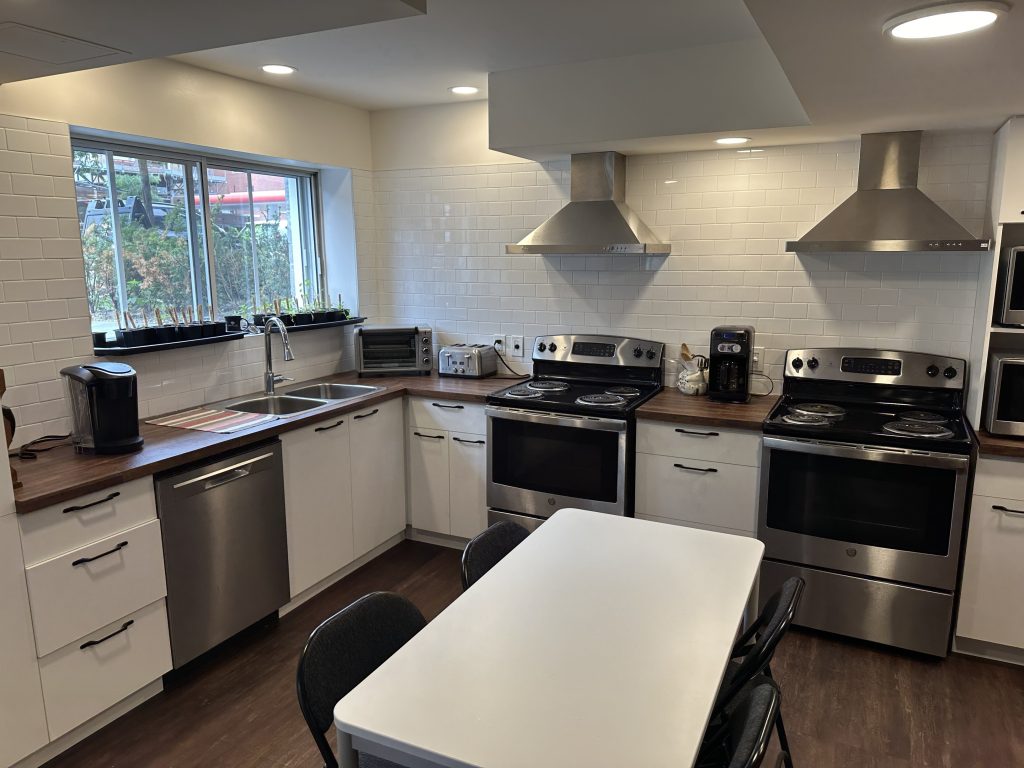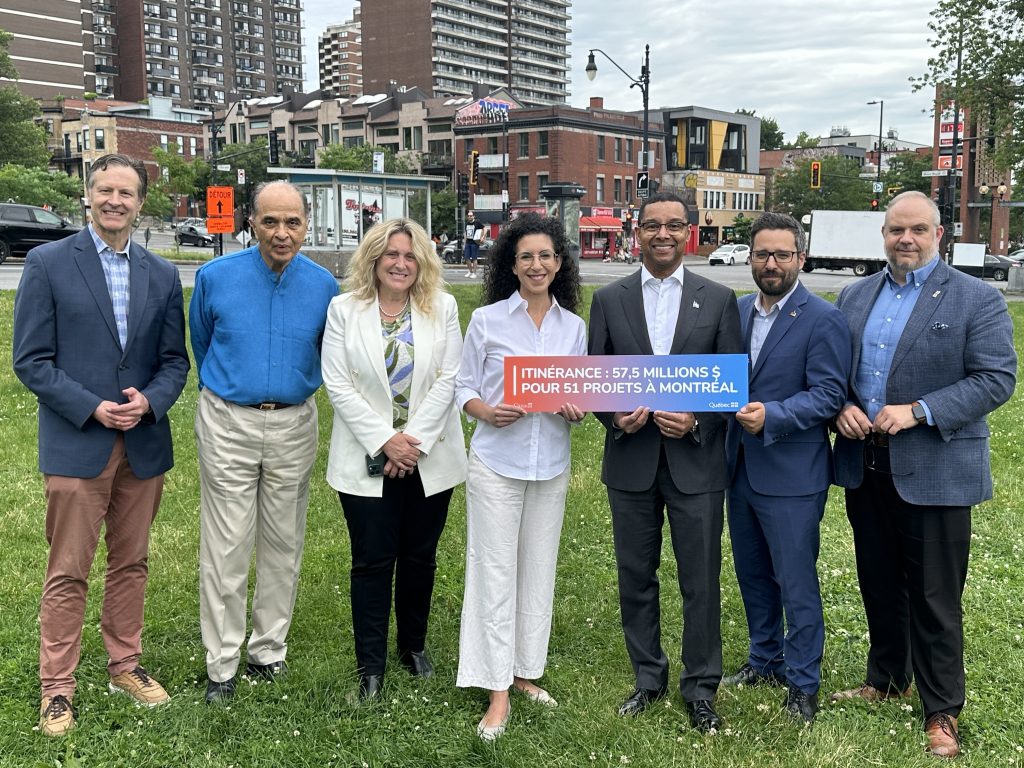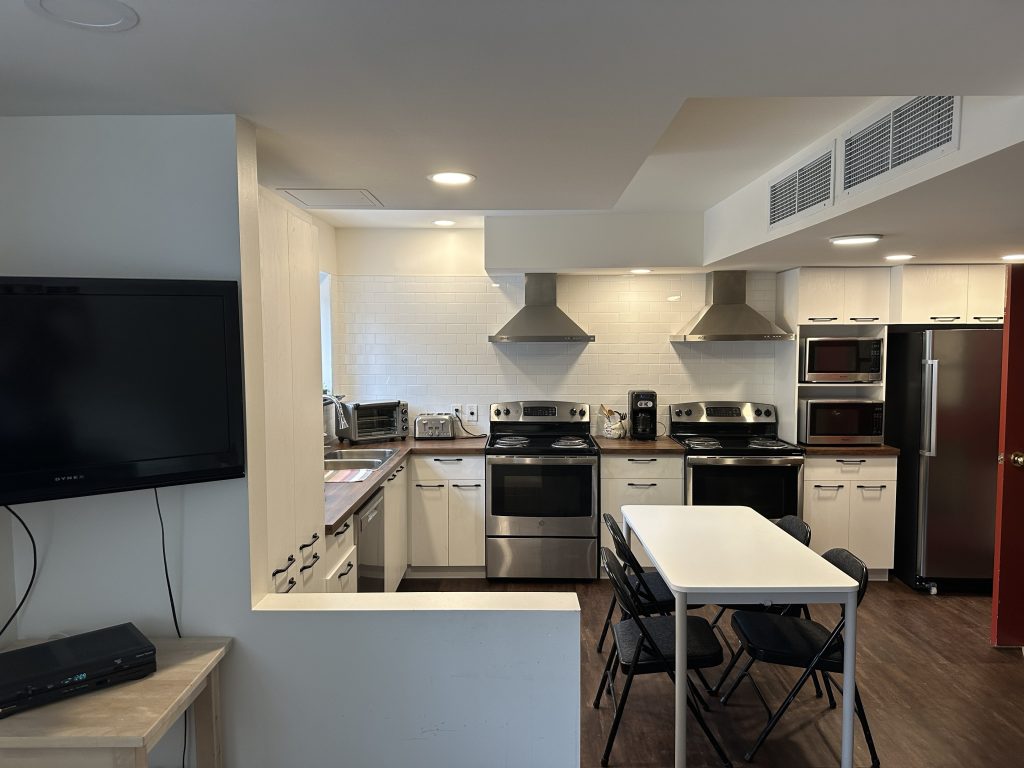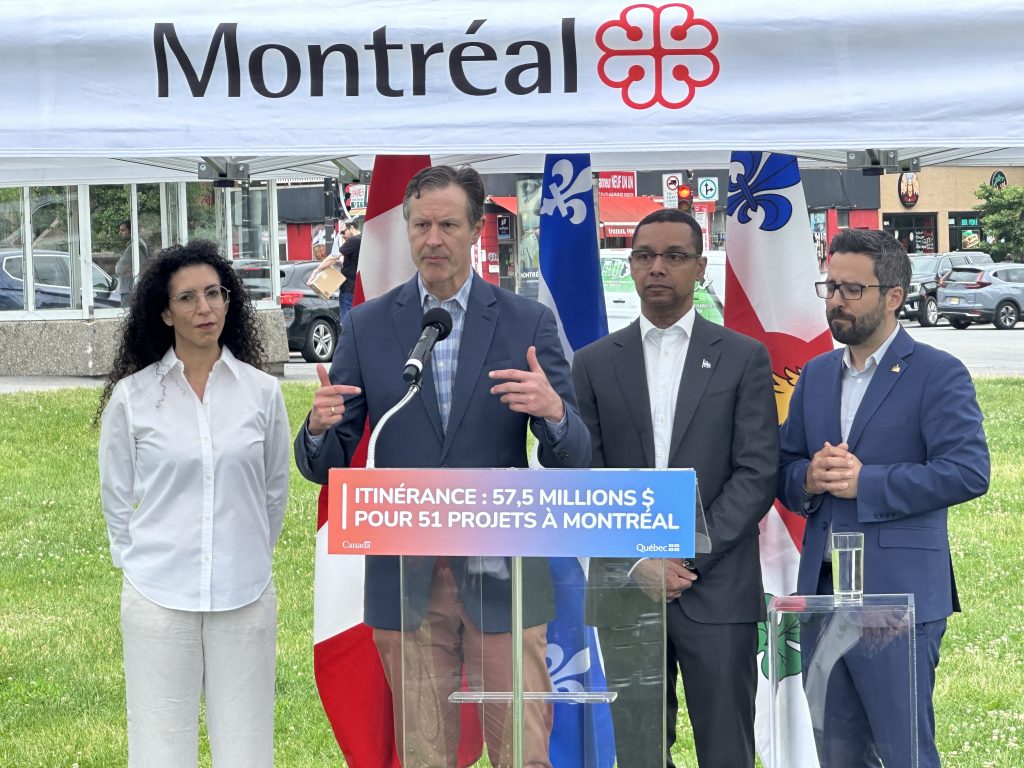$115M to support 51 emergency and transitional housing projects in Montreal

Posted June 21, 2024 12:56 pm.
Last Updated June 21, 2024 6:28 pm.
Ottawa and Quebec announced $115 million in funding to support and develop 51 emergency and transitional housing projects for people experiencing homelessness in Montreal – over the next two years.
The city will see an increase of 521 places for its vulnerable population, up by 30 per cent, by 2026.
In December 2023, there were 1,526 spots in emergency and transitional housing for Montreal’s homeless community.
“This is possibly the biggest increase in the number of emergency spaces that certainly I’ve seen in years and it will be helpful for sure to take some of the pressure off the organizations and add capacity,” said James Hughes, President and CEO, Old Brewery Mission. “I think it’s usually important to repeat that those have to be the right services.”
“The main solution to simple homelessness is housing. Whether it’s social, community, affordable or private market housing, we need to both increase and diversify the supply of housing across the metropolis,” added Hughes.
“Too many Montrealers and Quebecers are confronted with the unacceptable reality of homelessness, when everyone deserves to have a safe and stable home,” wrote the federal government in a press release. “It’s important to continue to unite all the forces at work, to invest more to help the most vulnerable and to ensure the development of housing projects for these clienteles.”

Bash Shetty Residence for homeless men
On Friday, they also inaugurated the Bash Shetty Residence – spearheaded by the Old Brewery Mission.
It’s located at 4544 du Parc Ave. in the Plateau. A 24-unit community housing project for homeless men.
The building was a former hotel that’s been transformed into a rooming house, including community spaces and areas for tenant support and accompaniment services.
“This is an amazing project that did indeed start in the midst of COVID. You all remember it, inflation prices were going up. It was so hard to figure out how we could do a housing project. Right here in the most one of the most beautiful parts of Montreal, for a clientele that many people are nervous about. Many people are nervous to have people coming out of homelessness in their backyard. Well, this proves that we can do it,” added Hughes.
The Government of Canada invested more than $6.5 million in the project as part of the Rapid Housing Initiative (RHI). Quebec is also helping to finance the project, valued at over $8 million, through its Rent Supplement program.
“The advantage of these projects is that it will stabilize these shelters and transition houses, which has been one of the major requests from the different organizations,” said Lionel Carmant, Quebec Social Services Minister.


“When it comes to people living outside, the toolbox that we presently have at the city of Montreal to deal with that situation is too limited,” continued Hughes. “We need to be much more creative and innovative And provide far more services than we do today – with a view of trying to help those people get housed. Just like we’re trying to help people get housed directly from emergency facilities.”
“Everyone deserves access to a safe, affordable home,” added Rachel Bendayan, Parliamentary Secretary to the Deputy Prime Minister and Minister of Finance and MP for Outremont. “The values of mutual aid and solidarity are fundamental to the residents of our neighbourhood, and this project demonstrates our commitment to ensuring that no one is left behind.”
“It’s just an example, as I said earlier, of something that works. Something that the community not only accepts, but is actually welcoming because it’s helping to relieve a situation which Montrealers no longer want to see,” said Bendayan.








